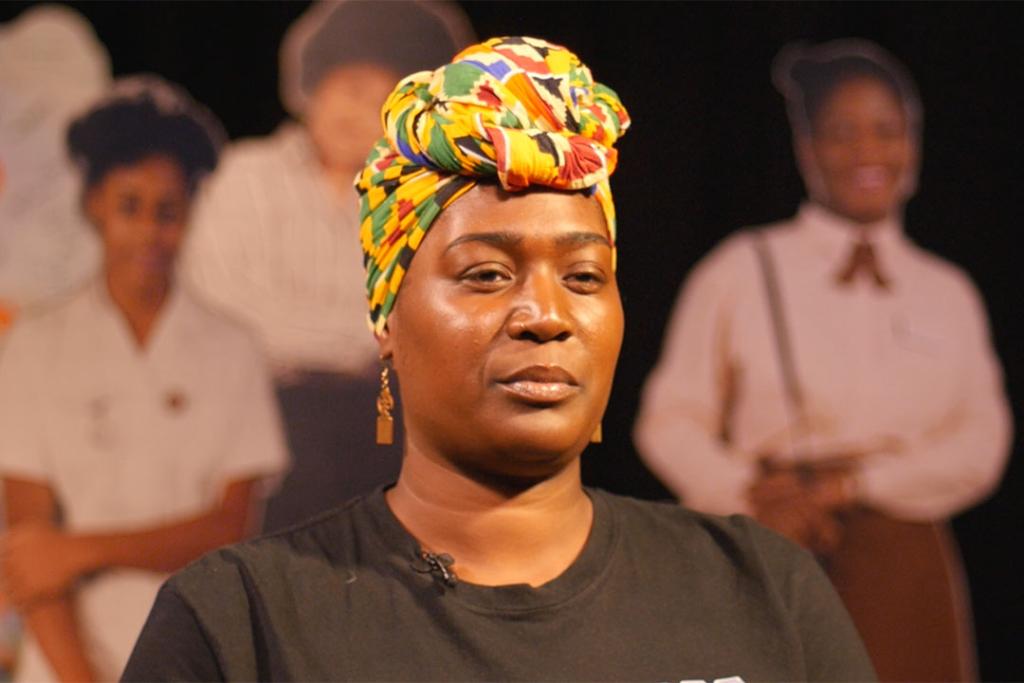Daughters of the Windrush
22 June is Windrush Day, a day which celebrates the contribution made by the men and women who moved from the Caribbean to Britain, beginning with the arrival of the ship Empire Windrush in 1948. In 2021 the Museum of Liverpool marked this day by adding the film Daughters of the Windrush to the permanent display inThe People's Republic gallery.

The women of the Windrush generation
Blackburne House, as a long standing women’s organisation, chose to contribute to the Windrush events in Liverpool 2019 with a documentary film, ‘Daughters Of the Windrush: The Descendants’ Stories’, directed by Hambi Haralambous, and it was only fitting that this project should focus specifically on women and on commemoration. We wanted to produce a legacy piece that would educate as well as commemorate the contribution, as well as highlight the hardship of the Windrush generation when they arrived in Liverpool in 1948. We have recorded, up to this point, the unheard stories of the daughters and granddaughters of the Windrush generation that settled in Liverpool. As with so much of British history, women's voices are almost absent from many key parts of an admittedly unexplored chronicle. In the famous, staged, Pathe newsreel of the Empire Windrush docking, for example, the narrator claims that the vessel brings to Britain 500 Jamaicans, but the footage shows no women disembarking from the ship. Gender and Maritime Historian Jo Stanley has highlighted the fact that amongst the 492 Caribbean migrants on-board, there were as many as 65 female settlers from Trinidad, Jamaica and Bermuda.
Liverpool's Windrush stories
What is often not revealed in the many stories, films and literature on Windrush is that many people from the Caribbean settled outside of London. We know that at least 68 men from the Empire Windrush settled in Liverpool and went onto marry local women. It is these local women and their children that are central to our project and documentary film. This documentary highlights and celebrates how interracial marriages with links to the Windrush helped to change the face of Liverpool, Britain, and British identity. It explores stories of great family achievements against all the odds, for example, women who worked hard to buy property for their children so that they would not have to face the racism they themselves suffered when attempting to rent property where landlords stipulated: “No Irish, No Coloured, No dogs”. These stories are so we can both remember and celebrate their lives and their contribution to British society. This film also provides an opportunity to learn from the discrimination and hardship these people faced just for falling in love and marrying the men they did. We invited the female descendants of the Windrush generation to attend regular oral history workshops at Blackburne House. We felt that this was a great way for the women to not only build confidence but to explore and share their personal experiences.
Liverpool’s Windrush history has been largely subsumed into a general history of Black Liverpool, though the impact of those arriving in the city during the Windrush era specifically is profound. None more so than that of Harold Adolphus Phillips, ‘Lord Woodbine’, for example, a Trinidadian musician, singer and songwriter. Woodbine arrived in England on board Empire Windrush in 1948. He was active and popular on the Liverpool music scene and is credited by some as the forgotten sixth Beatle. “No Empire Windrush no Beatles” (Tony Broadbent 7DNews). Many stories like this are explored through this documentary and we discovered famous music producers, Caribbean Prime Ministers, Directors of Education, Ambassadors, heroes and heroines all descended from or connected to the Windrush generation.
Telling the untold stories
This project, by way of a documentary film, oral history and archive footage including personal stills, photographs and community stories, tells the currently unheard contribution of the Windrush generation to British life and culture here in Liverpool. Our film Daughters of the Windrush is part of our duty to make sure that the experiences of the Windrush generation are not overlooked or forgotten and the Windrush scandal of 2018 is never repeated. It opens a dialogue surrounding British identity and citizenship and what we hope contributes to a more inclusive and connected society. We are proud to say that the documentary film will now have a permanent home in the North West Film Archive and the Liverpool Records Office, preserved for posterity and accessible to the community and general public for generations to come.
Watch the film
You can watch Daughters of the Windrush below. This film is also on display in The People's Republic gallery at the Museum of Liverpool and on our Inspirational Women page.
This video has optional subtitles, use the button towards the bottom right corner of the video to turn them on and off while you are watching.
Lead image: Daughters of the Windrush © Hambi Haralambous
